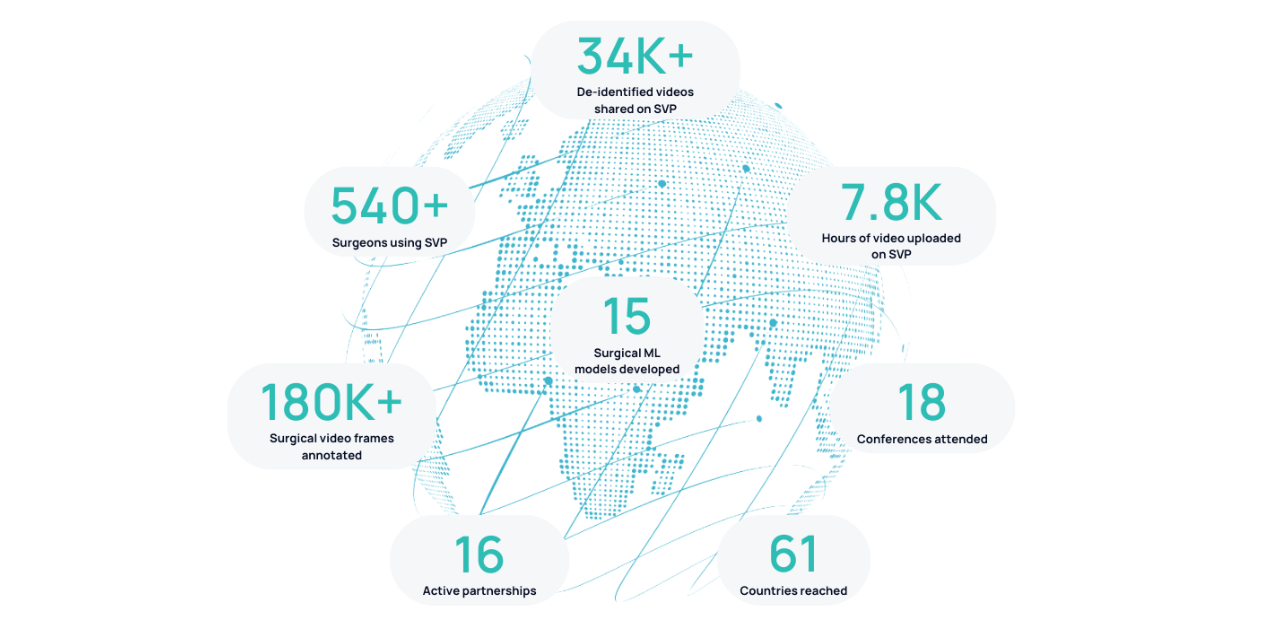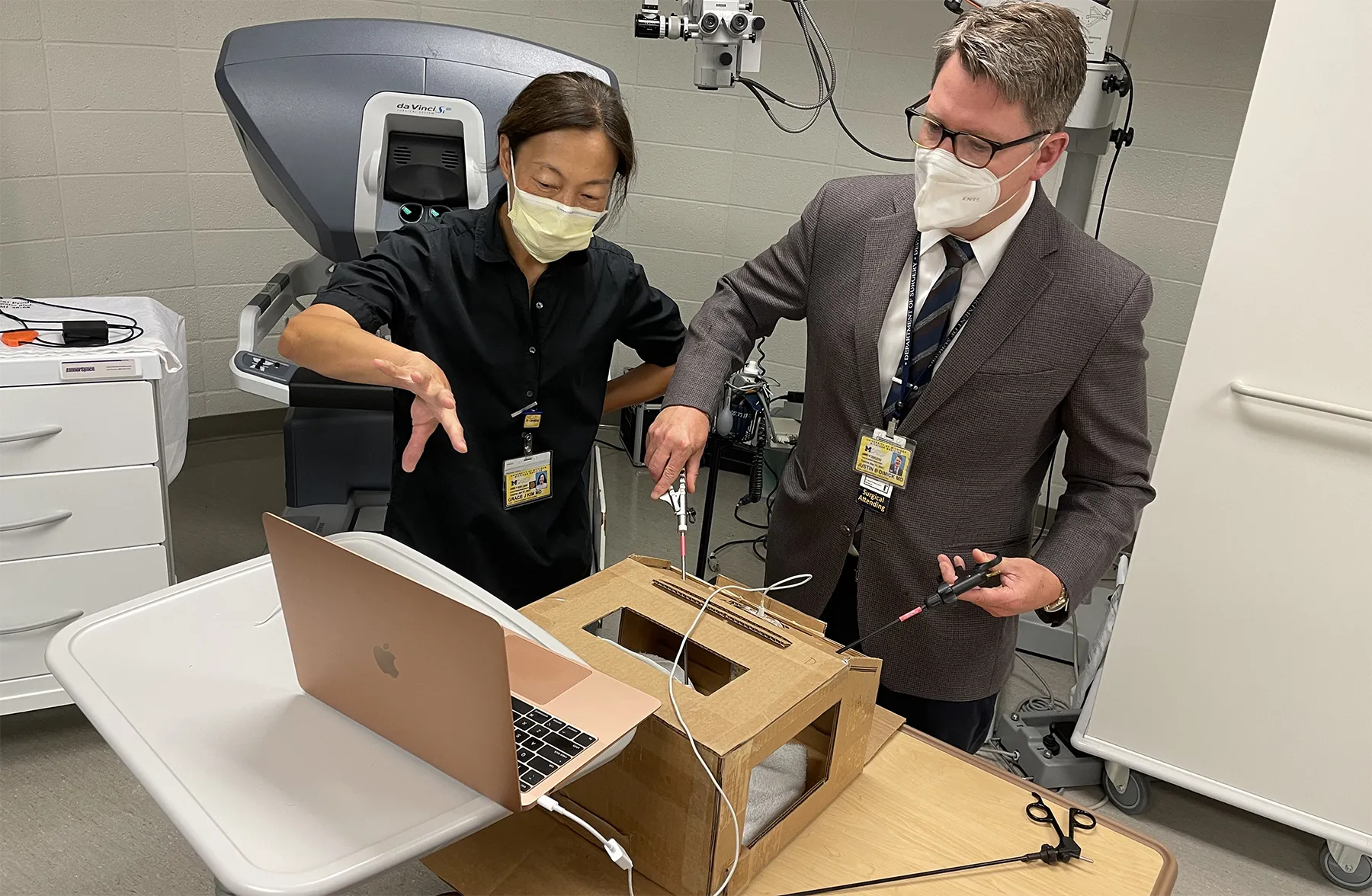
It is a well-known problem that women’s health has been gravely devalued and under-resourced across medical history. In the field of Obstetrics and Gynecology (OB/GYN), there is a stark shortage of clinician-scientists conducting research, and most available research is over a decade old. In many low-resource settings, it’s nearly impossible to even find mentors. The burden of time, lack of access, and absence of structured support keeps the best minds from contributing to the research that could change the lives of countless women across the globe.
It's time for this to change.
How can Computer Vision empower OB/GYN surgery?
There simply isn’t enough research being done – especially while clinicians could be utilizing the vast volumes of surgical videos that OB/GYN surgeons already generate daily. We’re inviting OB/GYN clinicians, residents, and students alike to join a thriving research community that’s gained huge momentum in specialties like neurosurgery and general surgery. The nonprofit Surgical Data Science Collective (SDSC) is here to help you do your research. Through our advanced computer vision (CV) models, our trailblazing Machine Learning (ML) team is making research more accessible, scalable, and impactful.
We take the heavy lifting off your shoulders when you submit your research proposal through our application form. We review your ideas, discuss your goals with you, and then allocate a tailored team to work alongside you. Depending on the project, that could include:
- ML engineers, who train artificial intelligence (AI) models to detect and analyze specific objects, events, or other data in the videos.
- Data scientists, who derive statistical meaning from model outputs, correlate findings with other requested data, and help you reach your publishing goals.
SDSC’s Surgical Video Platform (SVP) is a research tool combined with a collaborative research environment where your videos become the data behind novel discoveries.
Our ML systems can automatically track tool usage, surgical phase transitions, or moments of surgical difficulty from your laparoscopic videos. We’ve already proven this technology in neurosurgery, and we are now breaking into simulation-based OB/GYN training through our partnership with ALL-SAFE – a fellow non-profit that provides surgical training courses for laparoscopic surgery in low-resource settings.
Case Study: ALL-SAFE x SDSC
ALL-SAFE is a great example of how our ML models can adapt to real constraints in global healthcare. ALL-SAFE’s inventive curriculum allows OB/GYN trainees in several resource-limited settings in Africa to practice life-saving ectopic pregnancy surgery techniques on simulated anatomy with inexpensive household items, such as towels and sponges. With limited access to real surgical training, these simulation models provide residents with hands-on technique practice.
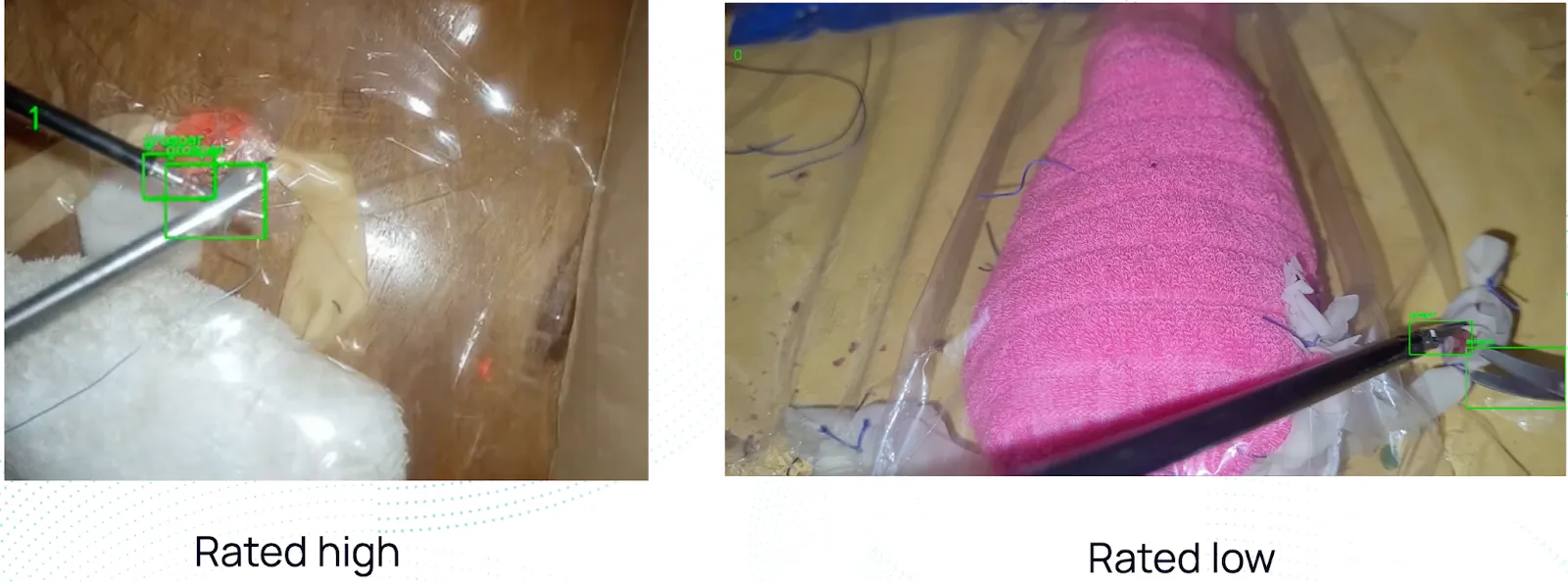
For this project, students record themselves on smartphones practicing key techniques on the simulated uterine system models and upload the videos to SVP for review by expert surgeons at ALL-SAFE. However, there was a problem: initially, the platform provided a single global score, and students occasionally received high scores on videos that expert surgeons rated poorly. From the computer’s perspective, the tools appeared to move correctly, but in reality, the technique was flawed.

In response, our ML team developed a new computer vision (CV) model to analyze the videos using SDSC’s surgical task assessment concept. This model uses a Mixture of Experts (MoE) system to improve task assessment accuracy and consistency by answering binary (yes/no) questions about specific procedural tasks. It demonstrates a proof-of-concept for surgical skill assessment in low-data settings, where there is limited and greatly variable surgical video availability. No matter where you are in the world, we can help empower your surgical education even with the scarcest of training resources.
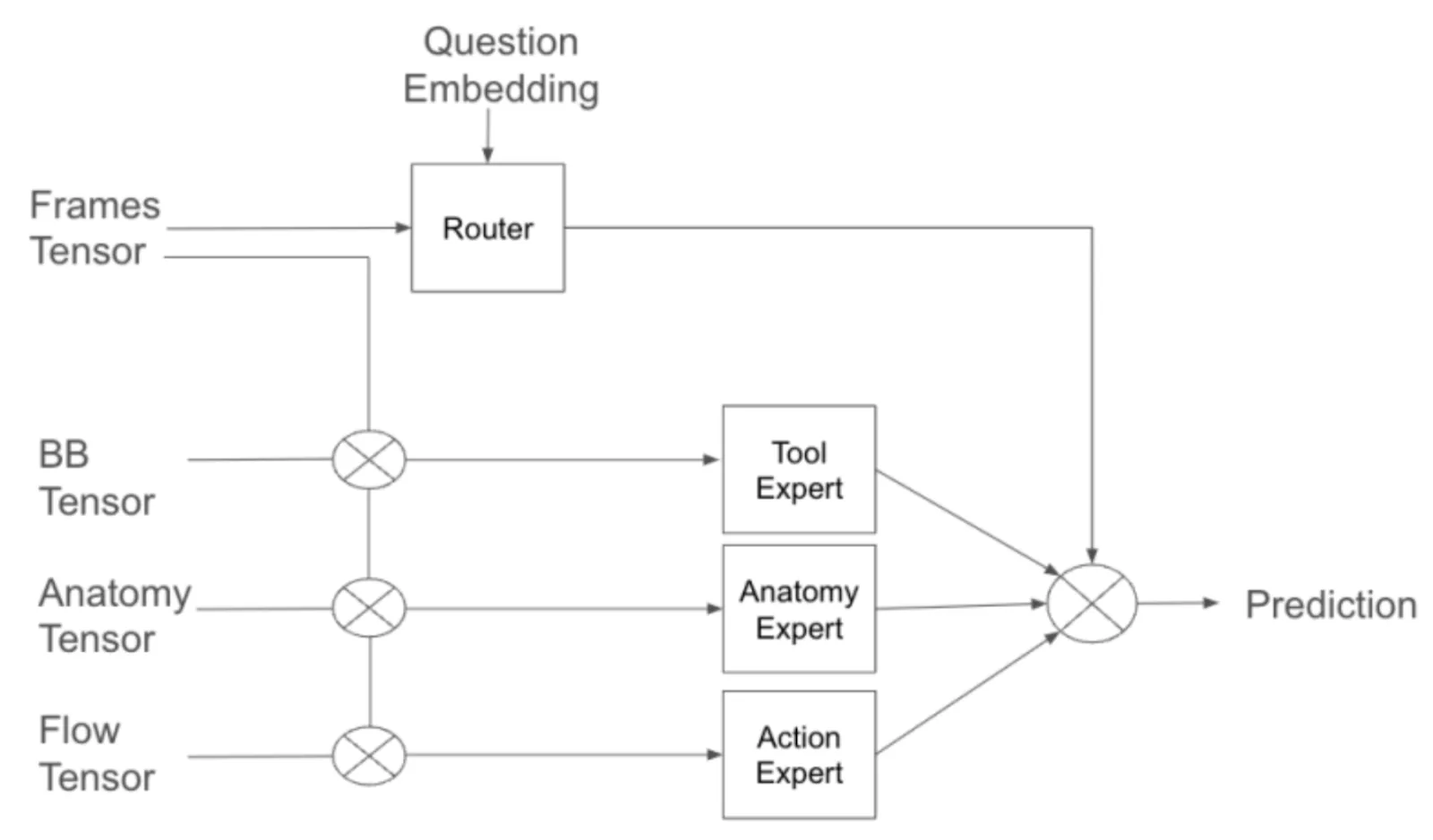
It's a small step, but it’s the start of a massive opportunity.
We can redefine OB/GYN research together
The future of surgical innovation in OB/GYN depends on clinicians choosing to drive this research forward. Women’s health has been underrepresented in surgical research for far too long. With SDSC’s full-stack support, cutting-edge CV tools, and an international network of clinicians, we’re ready to change that – and we need you with us.
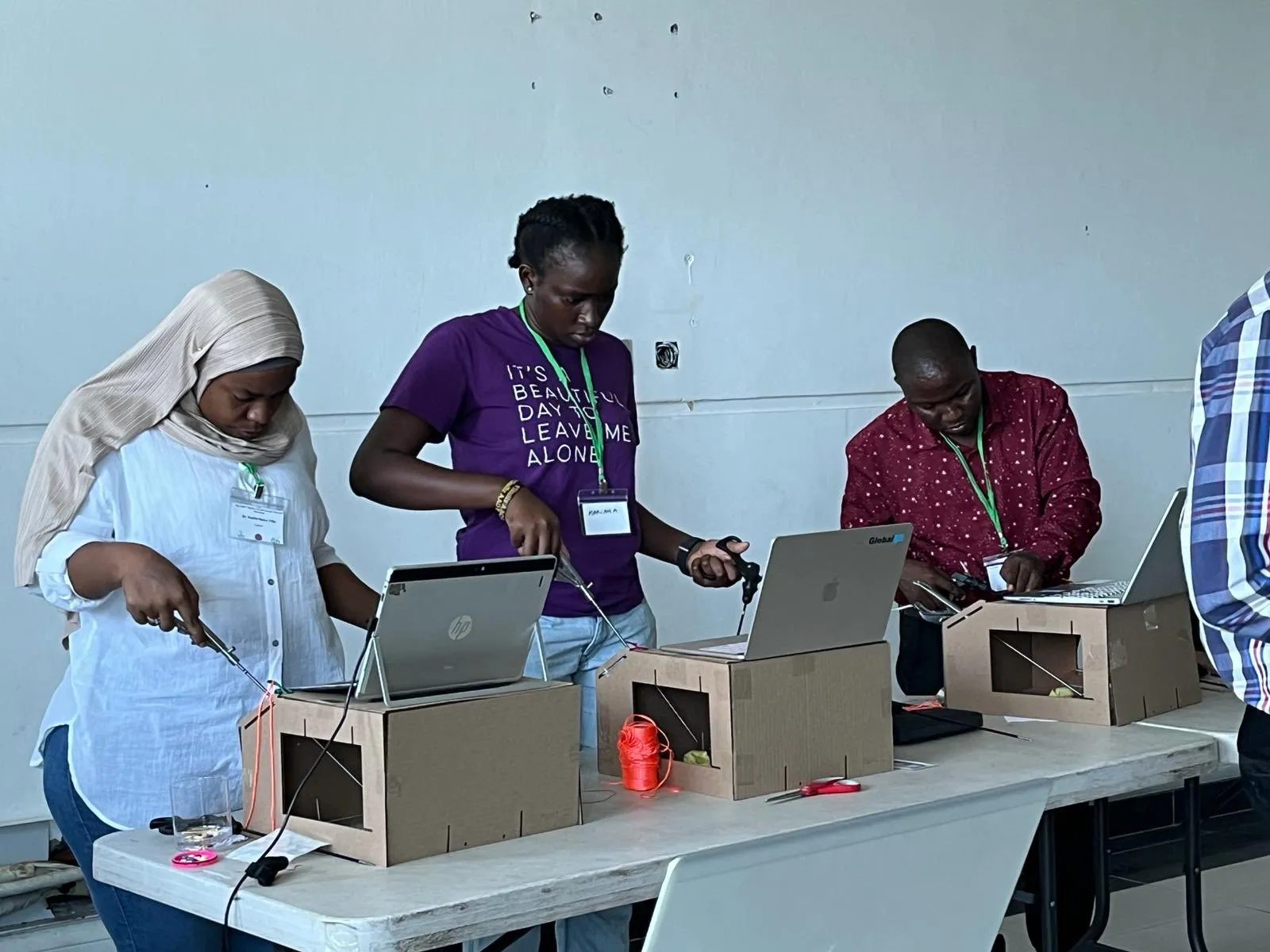
Submit your research idea. Let’s see what we can build and discover – together.



.png)
.png)
